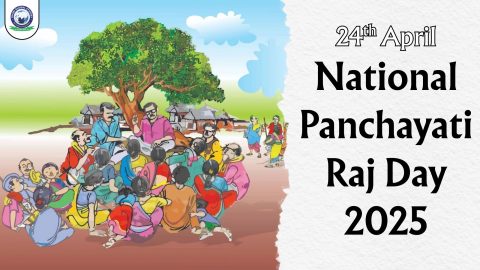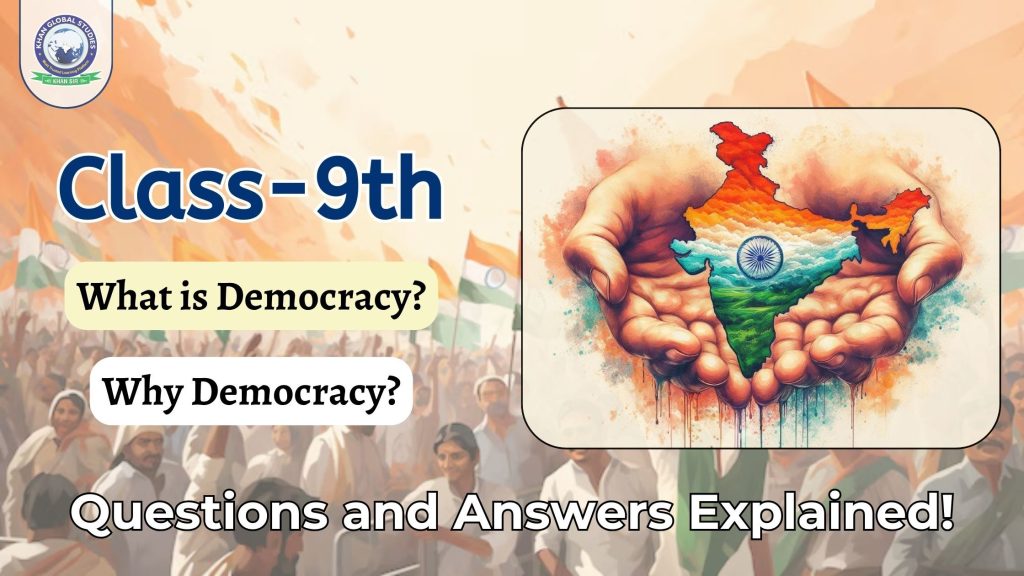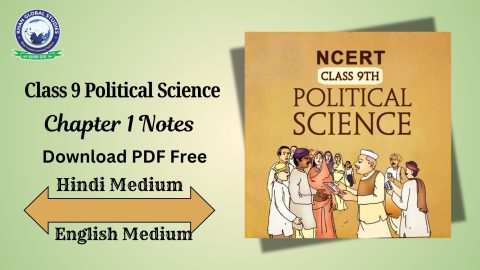What is Democracy? Why Democracy? | Class 9 Questions And Answers: Democracy is a basic concept that governs everything from governance to social interactions globally. For Class 9 students, understanding democracy is not just for academics but to be an informed citizen. This post will cover the definition of democracy, its importance and answers to the questions from NCERT Class 9 Civics syllabus.
Definition of Democracy
Democracy is a system of government where the rulers are elected by the people through regular, free and fair elections. This ensures that power is with the people and they have a direct say in how they are governed. The essence of democracy can be summed up in Abraham Lincoln’s famous quote: “government of the people, by the people, for the people.”
Characteristics of Democracy
To understand the importance of democracy:
- Elected Representatives: In a democracy, leaders are elected, so they represent the will of the people.
- Political Equality: Every citizen has the right to participate in the political process, including voting and contesting.
- Majority Rule: Decisions are made on the basis of majority while respecting minority rights.
- Accountability: Elected representatives are accountable to their people and regular elections provide a means for citizens to approve or disapprove of their leaders’ performance.
- Protection of Rights: Democracies protect fundamental rights and freedoms so citizens can express themselves without fear.
Why Democracy?
Democracy is considered the best form of government for several reasons:
- Promotes Equality: It creates an environment where all have equal opportunities to influence governance.
- Encourages Participation: Citizens are enabled to participate in decision making, so civic sense.
- Ensures Transparency: Democratic systems are transparent, so citizens can hold their leaders accountable.
- Resolves Conflicts: In a multicultural society, democracy provides means for peaceful conflict and negotiation among different sections.
- Human Rights: Democracies protect individual freedoms and civil rights better than autocracies.
Class 9 Questions and Answers
Here are some questions and answers about democracy as per Class 9 Civics:
- What are the characteristics of a democratic government?
- Elected representatives, political equality, majority rule, leaders are accountable, fundamental rights are protected.
- Why is democracy the best form of government?
- Political equality, transparency, accountability, individual freedom, citizens can participate in governance.
- What is the role of free and fair elections in a democracy?
- Free and fair elections are important as it ensures the government represents the people and leaders are accountable to their voters.
- How does political equality work in a democratic system?
- Political equality means every citizen has an equal right to vote and participate in political activities, regardless of their background or status.
- What are the challenges of democracies?
- Political instability due to frequent change of leadership, slow decision making due to debates and consensus building, disenfranchisement of certain groups.
End
Democracy is important for students as it lays the foundation of informed citizenship. The principles of democracy not only govern political structures but also social interactions in the community. By going through these concepts in their studies, Class 9 students can understand their part in a democratic set up.
This is an educational material and a study guide for students preparing for exams.





Sir I am 25 years old and I’m belongs to ST category. am I eligible for CDS 2024 exam
Hello Shankar, you are not eligible for CDS 2025 Exam because the age limit for this exam 20 to 24 years (as on 1st July 2024).